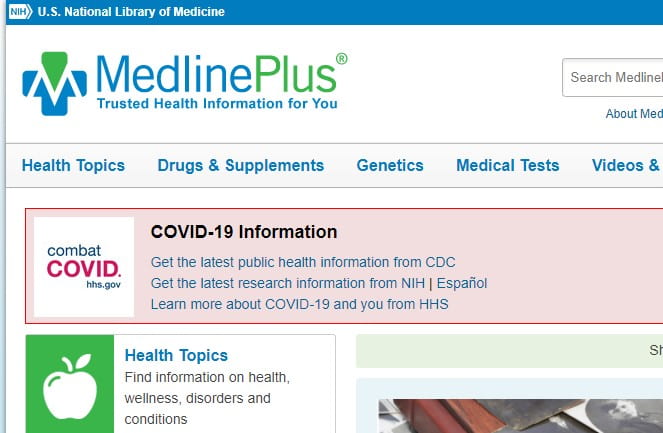Medical librarians have been important advocates for health literacy, so it’s appropriate that we celebrate the profession the same month we recognize the importance of health literacy. Healthy People 2030 updated their definition of health literacy to include both personal and organizational health literacy:
- Personal health literacy is the degree to which individuals have the ability to find, understand, and use information and services to inform health-related decisions and actions for themselves and others.
- Organizational health literacy is the degree to which organizations equitably enable individuals to find, understand, and use information and services to inform health-related decisions and actions for themselves and others.
The National Library of Medicine and the National Network of Libraries of Medicine (NNLM) play a key role in delivering health literacy programs and information resources. MedlinePlus piloted in 1998 as a consumer health information website. It provides a trusted, evidence-based information resource that includes resources in Spanish and over 40 other languages on medical topics, tests, drug information, and genetics. Health check tools including calculators and questionnaires are available. MedlinePlus Connect is a free service that allows linkage of patient information to the EHR.

Medical librarians support health literacy through programs like InformationRx services that provide tailored patient education materials assembled by librarians to patients at the request of attending physicians. Medical librarians also do outreach initiatives, like train the trainer programs for community lay health workers, frequently supported by NNLM grants. The Medical Library Association provides consumer health information specialization training for librarians who provide health information services to the public.
Medical librarians have been active in the fight against the Covid infodemic. At the Eskind Biomedical Research Library, Vanderbilt University, librarians supported nursing staff to make sure they had easy access to the most up to date information when communicating with patients and they did outreach to nurse educators and patient advocacy groups. The Medical Library Association maintains a Covid-19 Resource Guide for Patients and the Public.
Looking for quality consumer health information resources? Himmelfarb Library has a Consumer Health Resources Guide including patient education materials from AccessMedicine and ClinicalKey for Nursing, consumer health websites, and drug information. Need more help? Contact our reference staff at himmelfarb@gwu.edu or chat us!
Walker P. (2021). The library's role in countering infodemics. Journal of the Medical Library Association : JMLA, 109(1), 133–136. https://doi.org/10.5195/jmla.2021.1044
Whitney, W., Keselman, A., & Humphreys, B. (2017). Libraries and Librarians: Key Partners for Progress in Health Literacy Research and Practice. Studies in health technology and informatics, 240, 415–432 https://www.ncbi.nlm.nih.gov/pmc/articles/PMC5724359/


